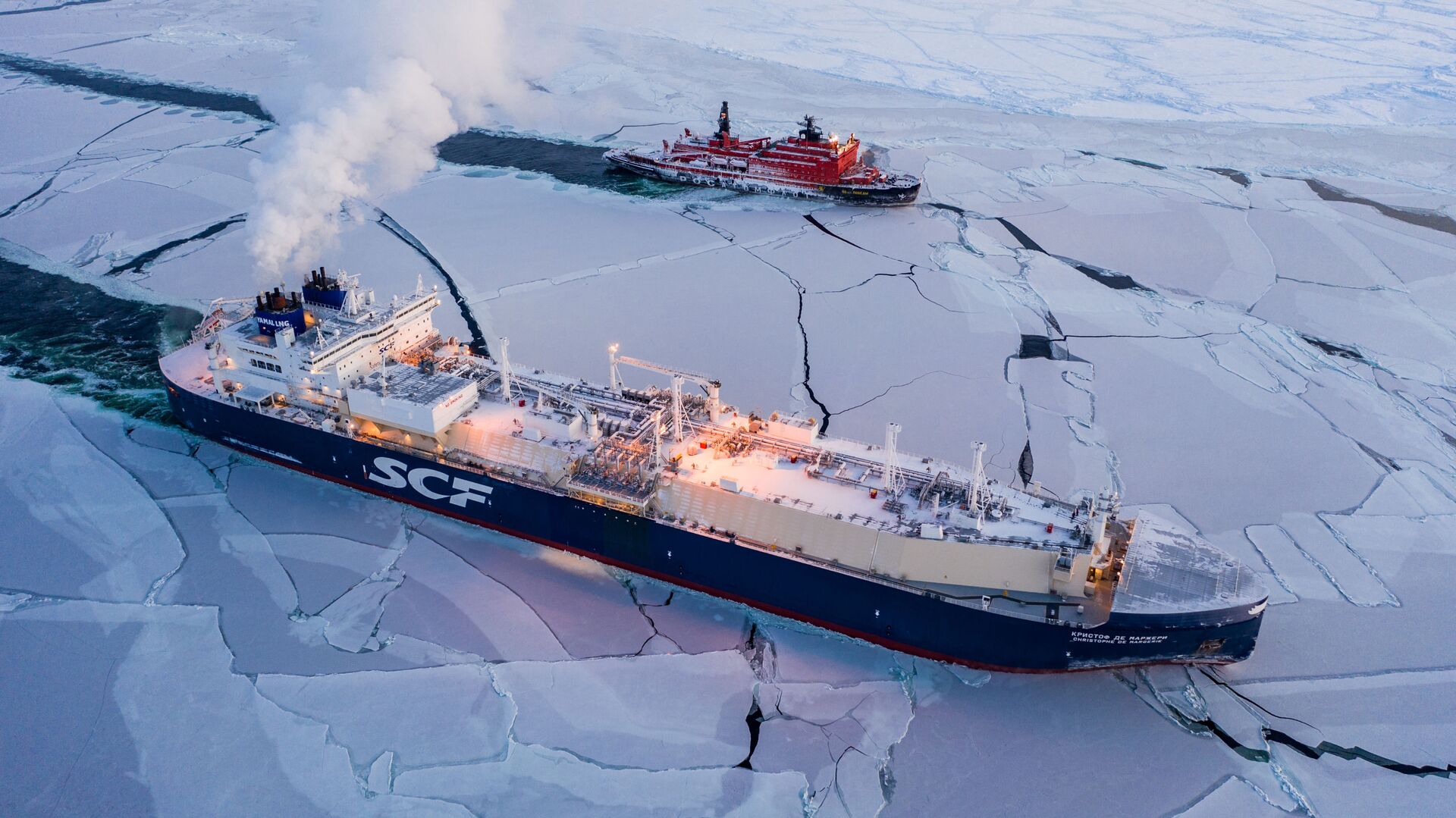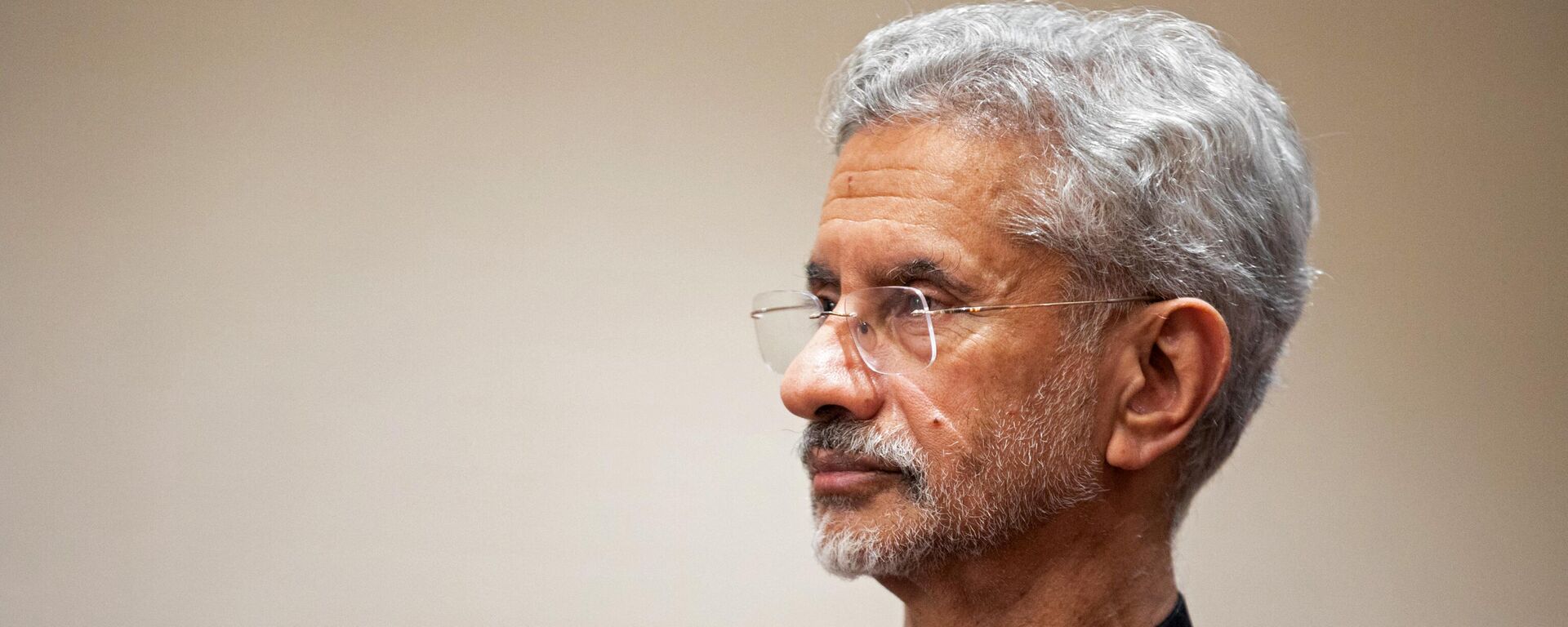https://sputniknews.in/20240905/india-backs-northern-sea-route-as-a-viable-alternative-to-suez-canal-8113529.html
India Backs Northern Sea Route as a Viable Alternative to Suez Canal
India Backs Northern Sea Route as a Viable Alternative to Suez Canal
Sputnik India
Vladimir Putin told the Eastern Economic Forum (EEF) on Thursday that Russia would further develop the Northern Sea Route (NSR) through re-orientation of cargo from West to East, bolstering coastal and railway infrastructure and developing transshipment facilities
2024-09-05T16:07+0530
2024-09-05T16:07+0530
2024-09-05T16:07+0530
business & economy
vladimir putin
india
russia
suez canal
brics
narendra modi
the arctic
climate change
critical minerals
https://cdn1.img.sputniknews.in/img/07e7/03/1b/1312289_0:197:3075:1926_1920x0_80_0_0_401c8a642929cf8d063268aded73a843.jpg
The Northern Sea Route (NSR) could serve Indian interests well in coming years, given the current geoeconomic trends which have the potential to shift the balance of power to East, an Indian official told the ninth Eastern Economic Forum (EEF) in Vladivostok on Thursday.Sodhi emphasised that New Delhi envisaged the participation of foreign investors in developing energy, infrastructure and ship-building projects to maximise the potential of the connectivity route.Highlighting the fact that India accounted for almost 5 million tonnes of cargo of total 36 million tonnes at the route last year, Singh remarked that the developments had the “potential to shift geoeconomic balance of power to the East”.He went on to describe the Northern Route as a “major transport corridor of the 21st century”.He said that the linking of the two connectivity initiatives would be possible through development of Russia’s river transportation and railway infrastructure.In his remarks, the Indian delegate also expressed hope for “full revival” of the activities of the Arctic Council, which have remained affected due to the Ukraine conflict.He highlighted six priority areas underpinning India-Russia cooperation in the Arctic Region- scientific cooperation, academic exchanges, energy projects, shipping and ship-building, training of mariners and green technologies.At the 22nd India-Russia Annual Summit at the Kremlin on 9 July, Prime Minister Narendra Modi and President Vladimir Putin called for forming a joint working body on the Northern Sea Route within the India-Russia Inter-Governmental Commission on Trade, Economic, Scientific, Technological and Cultural Cooperation (IRIGC-TEC).BRICS’ Growing Role in Developing NSRMeanwhile, Dr Raj Kumar Sharma, a senior research fellow at New Delhi-based think tank NatStrat, told Sputnik India that Moscow had been looking to strengthen cooperation with China, India and other BRICS partners in developing the Northern Sea Route since 2022.Sharma noted that the Ukraine conflict and the subsequent western sanctions had expedited Moscow’s eastward turn, with the ‘Plan of the development of the Northern Sea Route until 2035’ being one of the major goals of the Russian government.Dwelling on the challenges facing the Russian and other governments in developing the NSR, Sharma rated the “weather conditions” as being the biggest hurdle.“This means it will be difficult to work according to set plan,” he explained.Sharma said other issues involved sourcing of massive investments in developing infrastructure projects amid ongoing geopolitical tensions, which reduced the possibility of western investors putting money in the connectivity venture.
https://sputniknews.in/20240221/developing-russia-backed-polar-route-in-europes-long-term-interest-jaishankar-6624620.html
india
russia
suez canal
the arctic
red sea
chennai
china
antarctica
europe
eurasia
south asia
Sputnik India
feedback.hindi@sputniknews.com
+74956456601
MIA „Rossiya Segodnya“
2024
Dhairya Maheshwari
https://cdn1.img.sputniknews.in/img/07e6/0c/13/138962_0:0:641:640_100x100_80_0_0_2cb44360dbcdf6d84bf4b299cd045917.jpg
Dhairya Maheshwari
https://cdn1.img.sputniknews.in/img/07e6/0c/13/138962_0:0:641:640_100x100_80_0_0_2cb44360dbcdf6d84bf4b299cd045917.jpg
News
en_IN
Sputnik India
feedback.hindi@sputniknews.com
+74956456601
MIA „Rossiya Segodnya“
Sputnik India
feedback.hindi@sputniknews.com
+74956456601
MIA „Rossiya Segodnya“
Dhairya Maheshwari
https://cdn1.img.sputniknews.in/img/07e6/0c/13/138962_0:0:641:640_100x100_80_0_0_2cb44360dbcdf6d84bf4b299cd045917.jpg
northern sea route, north south corridor, instc, russia india trade, russian lng exports, indian arctic station, india russia arctic cooperation, western sanctions, g7 sanctions, eastern economic forum, putin speech, putin eef speech, modi speech, modi news, chennai vladivostok corridor, russia india ties, arctic council
northern sea route, north south corridor, instc, russia india trade, russian lng exports, indian arctic station, india russia arctic cooperation, western sanctions, g7 sanctions, eastern economic forum, putin speech, putin eef speech, modi speech, modi news, chennai vladivostok corridor, russia india ties, arctic council
India Backs Northern Sea Route as a Viable Alternative to Suez Canal
Vladimir Putin told the Eastern Economic Forum (EEF) on Thursday that Russia would further develop the Northern Sea Route (NSR) through re-orientation of cargo from West to East, bolstering coastal and railway infrastructure and developing transshipment facilities. Last year, cargo volumes on NSR hit a record high of 36 million tonnes.
The Northern Sea Route (NSR) could serve Indian interests well in coming years, given the current geoeconomic trends which have the potential to shift the balance of power to East, an Indian official told the ninth Eastern Economic Forum (EEF) in Vladivostok on Thursday.
“India looks forward to being part of this growth story and we are cooperating closely with Russian agencies to realize our joint vision,” Commodore Brijinder Singh Sodhi, the Naval Attache at the Indian Embassy in Moscow, told a panel ‘The Northern Sea Route and its Logistical Capabilities’.
Sodhi emphasised that New Delhi envisaged the participation of foreign investors in developing energy, infrastructure and ship-building projects to maximise the potential of the connectivity route.
Highlighting the fact that India accounted for almost 5 million tonnes of cargo of total 36 million tonnes at the route last year, Singh remarked that the developments had the “potential to shift geoeconomic balance of power to the East”.
“The prospects of NSR becoming an alternative to the Suez Canal route in linking Europe and Asia seem more relevant today, in the context of developments in Red Sea where cargo vessels find themselves under attack… The NSR is expected to supplement, if not replace, the major sea routes between Europe and Asia,” the Indian official said.
He went on to describe the Northern Route as a “major transport corridor of the 21st century”.
Further, the Indian Navy official stated that the potential linking of the NSR to the International North South Transport Corridor (INSTC) presented India with a “lucrative opportunity”.
He said that the linking of the two connectivity initiatives would be possible through development of Russia’s river transportation and railway infrastructure.
“The NSR could further link to the east with the prospective Chennai-Vladivostok corridor, on which the discussion between our two countries have reached an advanced stage… This could complete the circular route which would span Asia, Eurasia and Arctic Regions,” Singh remarked.
In his remarks, the Indian delegate also expressed hope for
“full revival” of the activities of the Arctic Council, which have remained affected due to the Ukraine conflict.
He highlighted six priority areas underpinning India-Russia cooperation in the Arctic Region- scientific cooperation, academic exchanges, energy projects, shipping and ship-building, training of mariners and green technologies.
At the
22nd India-Russia Annual Summit at the Kremlin on 9 July, Prime Minister Narendra Modi and President Vladimir Putin called for forming a joint working body on the Northern Sea Route within the India-Russia Inter-Governmental Commission on Trade, Economic, Scientific, Technological and Cultural Cooperation (IRIGC-TEC).
BRICS’ Growing Role in Developing NSR
Meanwhile,
Dr Raj Kumar Sharma, a senior research fellow at New Delhi-based think tank NatStrat, told Sputnik India that Moscow had been looking to
strengthen cooperation with China, India and other BRICS partners in developing the Northern Sea Route since 2022.
Sharma noted that the Ukraine conflict and the subsequent western sanctions had expedited Moscow’s eastward turn, with the ‘Plan of the development of the Northern Sea Route until 2035’ being one of the major goals of the Russian government.
“The debate around the transport and connectivity has acquired a sense of urgency in last two-three years, as the existing transport routes have faced issues. The Suez Canal route was blocked in March 2021 for six days that impacted cargo flows around the world,” the Indian think-tanker highlighted.
Dwelling on the challenges facing the Russian and other governments in developing the NSR, Sharma rated the “weather conditions” as being the biggest hurdle.
“This means it will be difficult to work according to set plan,” he explained.
Further, Sharma highlighted that there were genuine environmental concerns as well. “Climate change induced ice melting in the Arctic directly impacts weather patterns in countries like India,” he said.
Sharma said other issues involved sourcing of massive investments in developing infrastructure projects amid ongoing geopolitical tensions, which reduced the possibility of western investors putting money in the connectivity venture.



